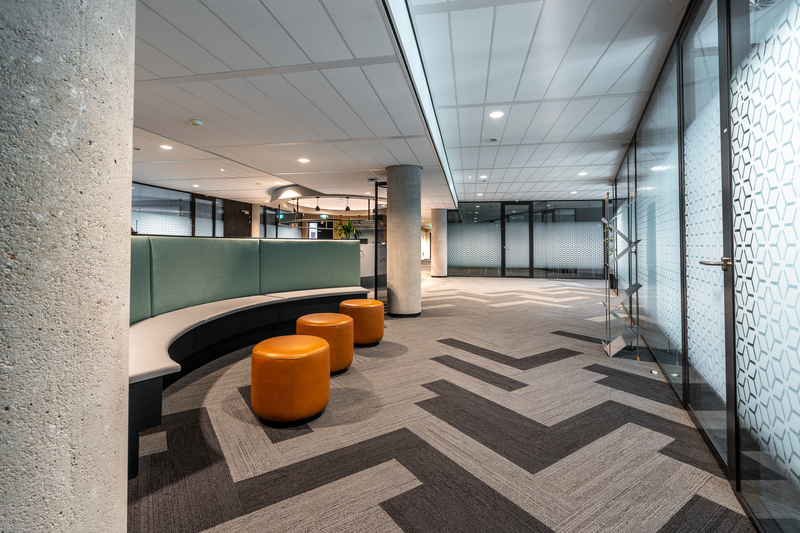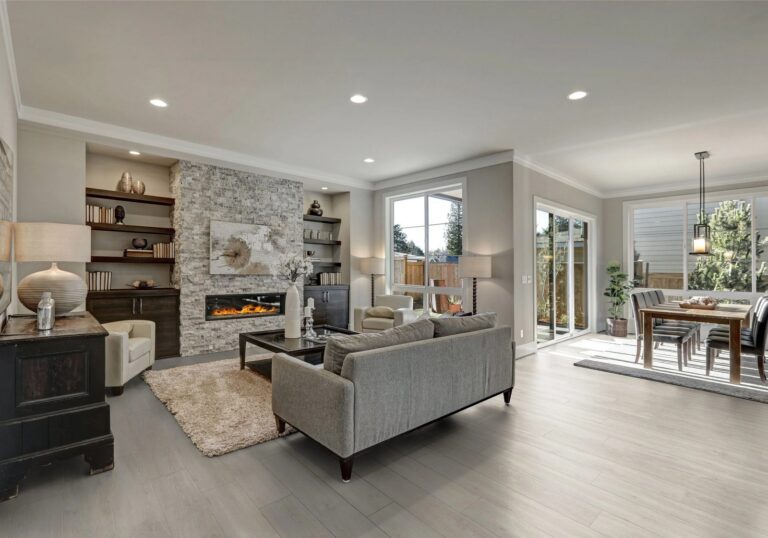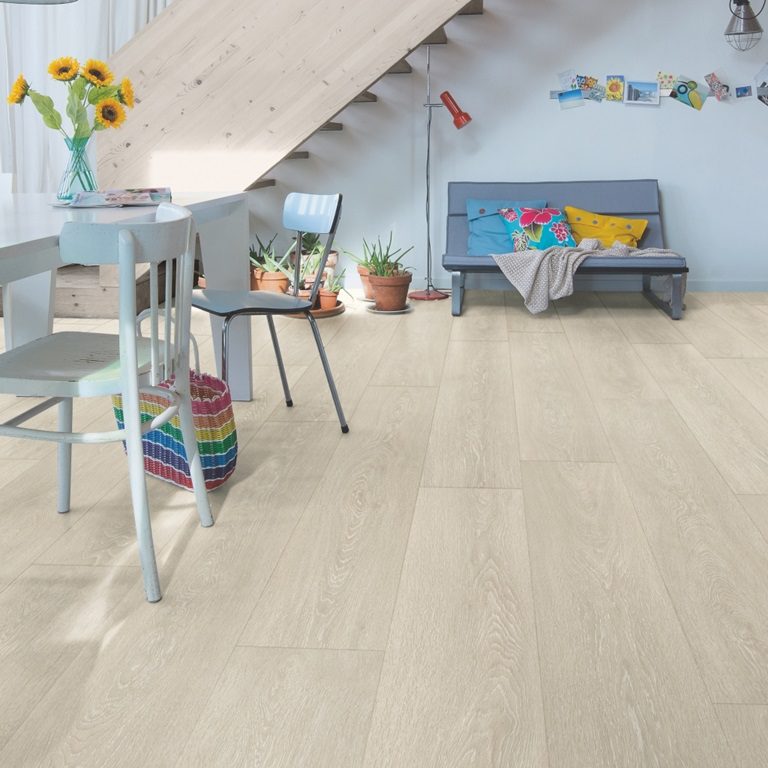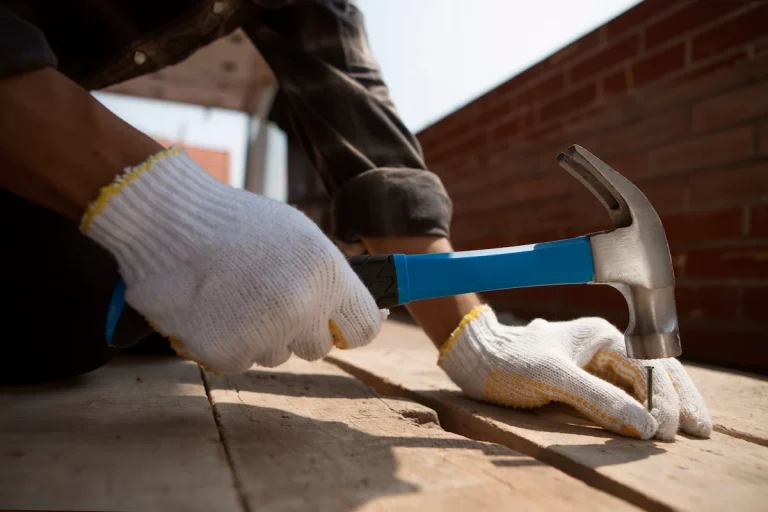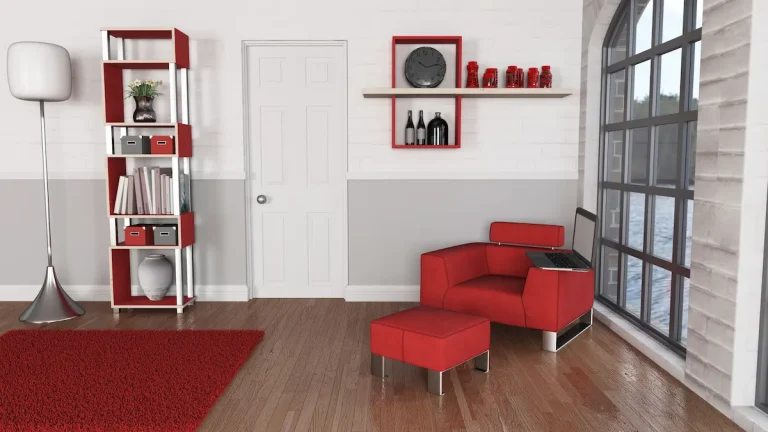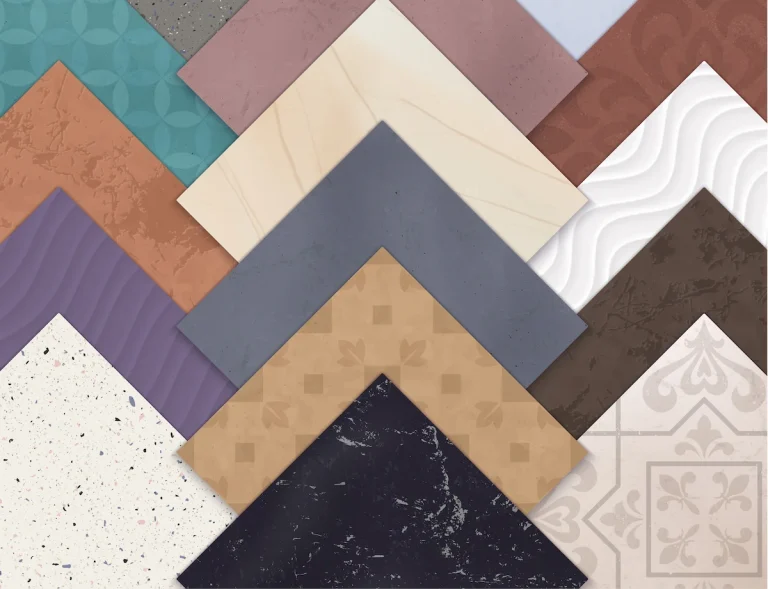Choosing the right commercial carpet can significantly impact both functionality and aesthetics, especially in high-traffic areas like office space and retail environments. But, what type of carpet is best for commercial use?
With various carpet types available, understanding their unique characteristics, such as carpet properties and installation time, is essential for making an informed decision.
This article explores the critical factors to consider when selecting commercial carpets, such as durability, stain resistance, and cost considerations. Discover the pros and cons of popular materials like nylon fibres and wool to find the perfect fit for your environment, considering both carpet styles and design trends.
What Is a Commercial Carpet?
Commercial carpet refers to a variety of commercial flooring options designed specifically for use in high-traffic areas, such as office spaces, retail environments, and hospitality settings. This type of carpet is engineered to withstand heavy foot traffic while providing aesthetic appeal and durability. Options such as carpet tiles and wall-to-wall carpets are common choices, each offering unique carpet properties and design possibilities to suit various commercial applications.
The versatility of commercial carpets allows businesses to create inviting spaces that reflect their brand while meeting practical needs. Carpet tiles, for instance, offer easy installation and maintenance, allowing for quick replacements in high-wear areas, aligning with effective planning and project guidance.
On the other hand, fitted carpets provide a seamless appearance, contributing to a cohesive look in large spaces, and enhancing both design freedom and carpet experience.
- Durability: Engineered to last and resist stains and wear.
- Insulation: Helps maintain temperature and absorb sound, enhancing comfort in busy environments.
- Design Flexibility: A wide array of colours and textures to match any aesthetic, offering significant design freedom.
Notable carpet manufacturers usually offer a range of options, ensuring that businesses can find the perfect solution for their flooring needs. Incorporating thoughtfully designed commercial carpets can greatly enhance the overall atmosphere of an office, contributing to employee productivity and client perception.
Factors to Consider When Choosing Carpet for Commercial Use
Selecting the right carpet for commercial use involves considering several critical factors that can significantly influence both the functionality and aesthetics of the space, ensuring a perfect match with the office environment and office layout.
Durability is paramount, especially in high-traffic environments where wear and tear can diminish the carpet’s appearance and performance. Additionally, factors such as stain resistance, cost considerations, noise reduction capabilities, and the overall style and design coherence with existing office layouts must be evaluated to ensure a successful carpet selection, guided by experts in carpet installation and commercial carpet choices.
a. Durability
Durability is a crucial aspect when selecting commercial carpet, as it ensures that the flooring can withstand heavy foot traffic and maintain its appearance over time. A durable carpet is typically made through advanced carpet construction techniques that involve tough materials such as nylon fibers and polypropylene carpets, which are known for their strength and resilience.
Choosing the right carpet material is essential for those who require flooring solutions that not only look good but can also endure rigorous wear and tear. The backing of the carpet also plays an important role in its overall longevity, as high-quality backing can significantly enhance stability and provide support against deformation.
For instance, carpets with strong primary backing and secondary action carpet backing are ideal for bustling areas like hotels and office lobbies, where heavy use is commonplace.
Nylon carpets are widely recognised for their excellent resilience and stain resistance, making them suitable for environments like schools and healthcare facilities. Polypropylene, on the other hand, is often used in outdoor settings due to its ability to resist moisture and fading from sunlight.
In commercial spaces, such as retail stores and airports, selecting carpets with these durable fibres ensures they not only sustain their functionality but also enhance the aesthetic appeal of the venue over time.
Ultimately, focusing on durable carpet materials is not just a practical choice, but one that contributes significantly to your investment in lasting quality.
b. Stain Resistance
Stain resistance is a vital property for commercial carpets, particularly in environments that are prone to spills and stains, such as restaurants, offices, and retail spaces. Many manufacturers incorporate advanced technologies into their carpet designs to improve stain resistance, making cleaning carpets much easier and less time-consuming, aligning with environmental impact considerations.
These technologies often include treatments like fluorochemical coatings, which bond to the fibres and repel liquids, thereby preventing soil and stains from setting in. As a result, the maintenance practices for such carpets can be simplified. Regular vacuuming and occasional spot cleaning with appropriate solutions become the standard upkeep methods. This not only extends the lifespan of the carpet but also enhances its appearance over time.
- Environmental Impact: It’s essential to consider the environmental implications of cleaning solutions. Many modern carpet cleaning products are formulated to be eco-friendly, reducing harmful chemical residues.
- Cost Savings: Investing in stain-resistant carpets can lead to significant cost savings in a commercial setting. Less frequent need for professional cleaning services and reduced carpet replacement rates directly contribute to the bottom line.
By taking these factors into account, businesses can enjoy a practical, visually appealing flooring solution that aligns with sustainability goals.
c. Cost
Cost is a significant consideration when choosing carpets for commercial use, as businesses often operate within strict budget constraints. While there are budget-friendly options available, it’s essential to find a balance between cost and carpet quality, as opting for cheaper materials may lead to higher long-term costs due to frequent replacements or repairs. Exploring carpet samples can aid in making informed carpet choices.
Understanding the various carpet categories, from synthetic fibres to natural materials, can help businesses make informed decisions. Each option comes with its own cost factors, such as durability, aesthetics, and maintenance requirements.
For instance, wool carpets are known for their durability and elegance but tend to have a higher upfront cost. Synthetic options, such as nylon and polyester, may be more affordable initially but could require costly upkeep over time.
Investing in quality carpets may seem steep at first, yet the savings in maintenance and replacement can be substantial. Evaluating pricing is crucial; consider factors such as material longevity, warranty coverage, and installation costs.
By prioritising value over initial expense, one can ensure a wise investment that pays dividends in the long run.
d. Noise Reduction
Noise reduction is an often overlooked but critical factor in commercial spaces, where excessive noise can disrupt productivity and create an uncomfortable environment. The acoustic properties of carpet play a significant role, contributing to sound absorption and enhancing the overall office projects.
Choosing carpets with good acoustic properties can significantly enhance sound absorption, providing both privacy and comfort in office settings. In particular, materials such as plush nylon and low-pile carpets excel in dampening sounds, making them ideal choices for busy workplaces.
Open-plan offices benefit greatly from carpets that absorb sound, as they help minimise distractions between colleagues.Boardrooms or conference areas with heavier carpet options can prevent echoes, ensuring that discussions remain clear and focused. Healthcare facilities often utilise sound-absorbing carpets to create more calming environments, aiding in patient recovery.
By selecting the right carpet type, businesses can foster a more productive atmosphere where sound distractions are significantly diminished, enhancing the acoustic benefits and supporting office environment goals.
e. Style and Design
Style and design play a pivotal role in the selection of commercial carpet, as they can significantly influence the overall aesthetic appeal and functionality of a space. With numerous design possibilities available, businesses can opt for bespoke designs that align with their branding and office layout while staying on top of current design trends, ensuring a cohesive office design.
Choosing the right carpet is not just about colour and texture; it involves understanding how these elements interact with lighting, spatial dynamics, and furniture arrangement. By exploring styles such as plush, looped, or patterned options, the right choice can dramatically elevate the office ambience. Incorporating bespoke designs allows companies to reflect their unique identity and foster a harmonious work environment.
- Aesthetics: Visual appeal can stimulate productivity.
- Durability: Ensures longevity in high-traffic areas.
- Comfort: Affects employee satisfaction and well-being.
Keeping an eye on emerging design trends enables businesses to stay competitive and relevant. Therefore, requesting carpet samples can provide a tactile experience, aiding in the well-considered choices process that leads to a successful and inspiring workspace.
Types of Carpet for Commercial Use
What type of carpet is used for commercial use? There are several types of carpet designed specifically for commercial use, each offering distinct benefits and suitable applications. Popular options include:
- Nylon carpet, known for its durability and resilience;
- Polypropylene carpet, recognised for its stain resistance;
- Wool carpet, appreciated for its natural fibres;
- Polyester carpet, valued for its affordability;
- Olefin carpet, which is favoured for its moisture resistance.
1. Nylon Carpet
Nylon carpet is one of the most popular choices for commercial spaces due to its exceptional durability and resilience against heavy foot traffic. It boasts a high-quality construction that helps maintain its appearance over time, making it an ideal option for busy office environments.
Not only does nylon carpet offer breathtaking aesthetic appeal with a wide range of colours and styles, but it also meets the practical needs of various businesses. Its resistance to stains means that spills are less of a concern, minimising costly maintenance and ensuring a cleaner workplace. This makes it particularly advantageous in settings such as restaurants or retail spaces where presentation is crucial. Nylon carpets are designed to withstand the rigours of constant use, making them an outstanding choice for environments where durability is non-negotiable.
The blend of beauty and practicality in nylon carpet ensures that it addresses the diverse demands of different commercial settings, contributing to a more appealing and functional atmosphere.
2. Polypropylene Carpet
Polypropylene carpet is a budget-friendly option that is particularly known for its excellent stain resistance and colour retention, making it suitable for environments prone to spills and accidents.
This versatile flooring material is not only resilient but also incredibly lightweight, which simplifies installation and replacement processes. Homeowners and business owners alike can appreciate its ability to withstand high foot traffic while maintaining an appealing aesthetic.
Cleaning is a breeze; most stains can be wiped away easily with soap and water. The fibre’s moisture resistance makes it effective in damp areas, such as basements or boot rooms. It’s ideal for spaces like playrooms, rental properties, or anywhere children and pets roam freely.
One must consider that it may lack the luxurious feel and durability found in higher-end carpet types, which could be a drawback for those seeking a more premium option for their living spaces. The economical nature of polypropylene makes it a sensible choice for many practical applications.
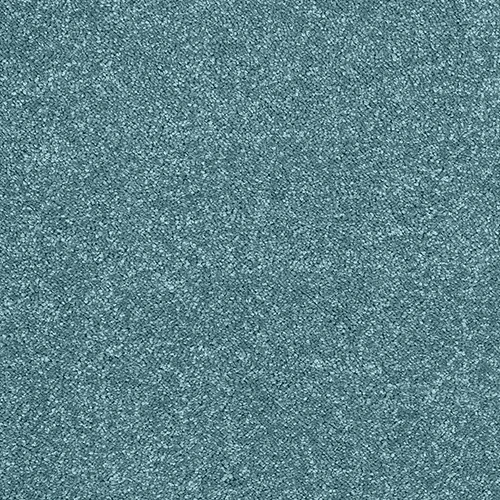
See product: Abingdon Caress Azure (Special Offer)
3. Wool Carpet
Wool carpet is celebrated for its luxurious feel and natural fibres, offering a sustainable option for environmentally-conscious businesses looking to reduce their ecological footprint.
Not only does it provide a soft, comfortable surface underfoot, but it also boasts remarkable durability, often lasting for years without showing signs of wear. This natural fibre has inherent properties that make it resistant to soiling, which means less frequent cleaning and maintenance.
- Comfort: Wool carpets create a warm and inviting atmosphere, ideal for any space.
- Durability: They can withstand heavy foot traffic, making them suitable for high-usage areas.
- Resistance to Soiling: Naturally repels dirt, allowing for easier upkeep.
When considering the environmental impact, opting for wool over synthetic materials means supporting a renewable resource. Wool carpets contribute to indoor air quality by naturally absorbing moisture and airborne pollutants, leading to healthier living spaces in the long run.
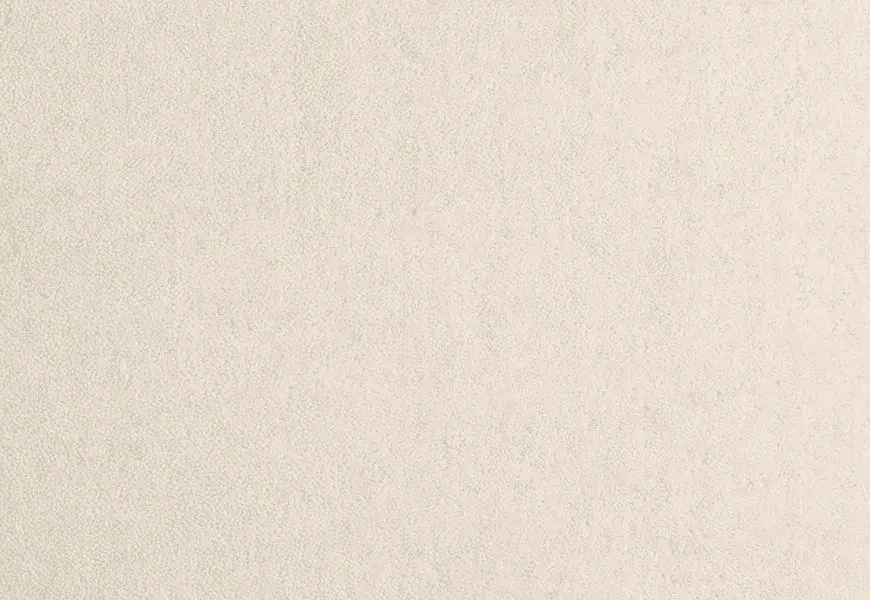
See product: Alternative Flooring Barefoot Bikram Chakra
4. Polyester Carpet
Polyester carpet is recognised for its affordability and vibrant colour options, making it a popular choice for businesses looking to enhance their décor without breaking the bank.
Along with its cost-effectiveness, this type of flooring boasts a softer feel compared to other materials, providing a comfortable underfoot experience. Its plush texture is particularly appealing in spaces where comfort is prioritised, such as offices or waiting areas.
It’s essential to note that polyester carpet is most suitable for:
- low-traffic areas
- home theatres
- bedrooms
as it may show wear and tear more quickly in high-traffic zones. The material also harmonises with a variety of carpet styles, from contemporary to traditional, making it a versatile choice for diverse design preferences.

See product: Alternative Flooring Plush Sheer Agate
5. Olefin Carpet
Olefin carpet stands out for its moisture resistance, making it an excellent choice for commercial areas where spills are likely, such as restaurants and healthcare facilities.
Its unique fibre makeup ensures that moisture does not penetrate the carpet beneath, allowing for easy cleaning and maintenance. This feature is particularly beneficial in high-traffic spaces. Olefin’s resistance to fading ensures that colours remain vibrant, even when exposed to sunlight.
Olefin carpets are also mildew resistant, which makes them suitable for environments prone to humidity. Unlike wool or nylon, which can absorb moisture, olefin repels it, making it a practical choice for various applications.
When comparing olefin to other carpet categories, such as nylon, it typically comes at a lower price point while still providing significant durability and stain resistance, resulting in a cost-effective solution for both residential and commercial purposes.
Pros and Cons of Each Type of Carpet for Commercial Use
What is the best material for commercial carpet? Evaluating the pros and cons of each type of carpet is essential for making an informed decision tailored to the specific needs of a commercial environment.
While carpets like nylon offer exceptional durability, others such as polypropylene provide cost-effective options with good stain resistance.
1. Nylon Carpet
The advantages of nylon carpet include its high durability and resistance to wear, making it a top choice for high-traffic commercial spaces. It can be more expensive than other options, which is a consideration for budget-conscious businesses.
When evaluating the benefits of nylon carpet, it is important to consider its longevity and ease of maintenance. Many businesses prefer nylon for its stain resistance, which allows for easier cleaning in busy environments. The vibrant colour retention over time ensures that commercial spaces maintain a professional appearance.
Advantages:
- Exceptional durability, ideal for offices and retail areas with heavy foot traffic.
- Stain and fade resistance contributes to lower overall maintenance costs.
- Available in a variety of colours and textures, allowing customisation for brand alignment.
On the downside, while the initial investment in nylon may be higher, its long-term performance can justify the cost. The high density of fibres can lead to increased static electricity, which might be a concern in certain settings such as electronic equipment facilities.
Disadvantages:
- Price point can be a significant factor for small businesses.
- Static electricity may pose issues in sensitive environments.
- Can sometimes feel less comfortable underfoot compared to softer alternatives.
2. Polypropylene Carpet
Polypropylene carpet is celebrated for its stain resistance and affordability, making it a popular choice for businesses. It may not be as durable as nylon and can show wear over time under heavy foot traffic.
This type of carpet is manufactured from synthetic fibres that provide an excellent barrier against spills and stains, ensuring that maintenance is relatively easy and less demanding. Its cost-effectiveness allows establishments to invest in flooring solutions without straining budgets, particularly useful for high-traffic areas such as offices, cafés, and retail spaces.
Yet, potential buyers should consider some limitations as well. For instance, prolonged use can lead to fraying and fading; thus, while the initial investment may be lower, replacement or repairs could become necessary sooner than with more durable options.
To weigh the benefits, consider the following points:
- Pros: High stain resistance, affordable pricing, easy to clean.
- Cons: Lower durability compared to nylon, susceptible to wear in heavy use situations.
Ultimately, determining suitability should involve assessing the environment and expected traffic levels.
3. Wool Carpet
Wool carpet provides exceptional comfort and durability due to its natural fibres, which can enhance the overall aesthetic of a commercial space. This high-quality carpet comes at a higher cost than synthetic options, which may deter some businesses.
Along with its luxurious feel, wool carpet is also renowned for its sustainability; it is biodegradable and sourced from renewable materials, making it an environmentally conscious choice.
This appealing blend of characteristics often leads to increased customer satisfaction and can improve indoor air quality. On the downside, maintenance can be somewhat challenging—frequent cleaning and care are necessary to retain its appearance.
Advantages:
- Luxurious aesthetics
- Sustainability
- Durability
Disadvantages:
- Higher initial cost
- Requires regular maintenance
While the pricing may not be suitable for every venture, its application in high-end hotels or boutique shops often pays off in terms of client impressions and lasting quality.
4. Polyester Carpet
The primary advantage of polyester carpet is its affordability and variety of colours, appealing to businesses with tight budgets. Its carpet versatility allows for custom design options, though it may not hold up as well under heavy foot traffic compared to nylon or wool.
While this type of carpeting can provide a cost-effective solution for many commercial environments, its durability is a significant consideration, particularly in high-traffic areas. Businesses such as retail shops, restaurants, and offices might find that the initial savings become less attractive when factoring in replacement costs due to wear and tear.
Along with affordability, polyester carpets offer:
- A wide array of design options, allowing for creative branding
- Stain resistance, which is beneficial in environments where spills are common
- Softness and comfort, making it inviting for customers
These benefits may be offset by:
- A tendency to mat down quickly
- Less resilience compared to other fibre options
Ultimately, the suitability of polyester carpet for specific applications may depend on the expected level of foot traffic and maintenance capabilities.
5. Olefin Carpet
Olefin carpet excels in moisture resistance and is a practical choice for areas prone to spills. As a commercial carpet option, it can be less durable than nylon and may require more frequent replacement in high-traffic environments.
In terms of choosing the right flooring, it’s essential to weigh the benefits and drawbacks of each type. Olefin carpet’s ability to resist moisture makes it a superb option for spaces like basements, kitchens, and bathrooms, where water exposure is common. This moisture resistance helps prevent mould and mildew, making it an ideal choice for families or environments with pets.
This type of carpet does have its downsides. While it stands up against spills effectively, its overall endurance is not on par with sturdier materials, such as nylon. Those looking for a longer-lasting option might find that olefin’s lesser durability higher likelihood of wear in busy areas outweigh its moisture-resistant benefits. Thus, for areas with heavy foot traffic or frequent use, considering an alternative might be advisable.
Conclusion: What Type of Carpet Is Best for Commercial Use?
Choosing the best carpet for your commercial space requires effective planning and an understanding of client needs, as well as a thorough evaluation of the various types of commercial carpets available. By considering factors such as durability, stain resistance, cost, custom design, and design, businesses can make informed decisions that align with their operational goals and aesthetic preferences.
In terms of selecting the right flooring solution, it is essential to remember that every detail contributes to the larger picture. The overall carpet experience can significantly influence a client’s perception and satisfaction. Aiming for a carpet that not only meets functional demands but also enhances the atmosphere can be a game changer.
- Durability: Opt for carpets designed to withstand high foot traffic, ensuring longevity.
- Stain Resistance: Choose options that are easy to clean, minimising maintenance efforts.
- Design: Select colours and patterns that resonate with your brand’s identity.
By acknowledging these aspects, businesses can create an inviting and practical environment that ultimately serves their long-term goals, providing value that extends far beyond the initial purchase.
In conclusion, selecting the right carpet for your commercial space is crucial for creating a welcoming and functional environment. With options like durable nylon, flexible carpet tiles, and resilient Berber carpets, businesses can find the perfect fit for their specific needs.
To ensure you make the best choice, consider visiting TEKA Flooring, where you can explore our extensive range of high-quality carpets designed for commercial use. Plus, take advantage of our special offers to get the best value for your investment. Elevate your workspace with TEKA Flooring today!
Read also:


























